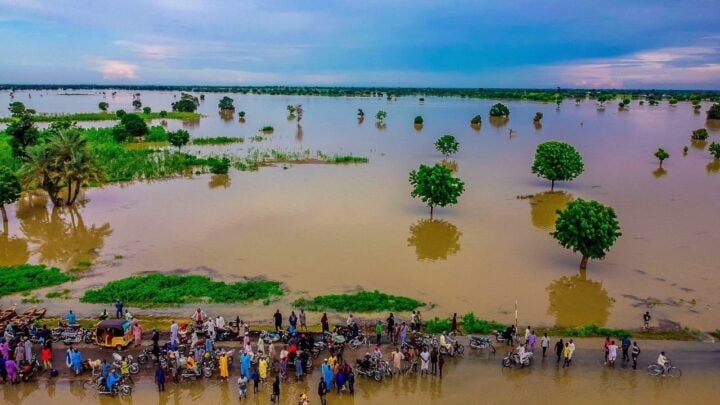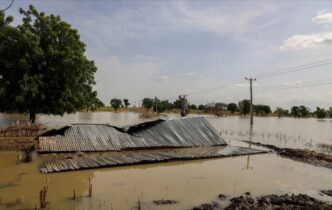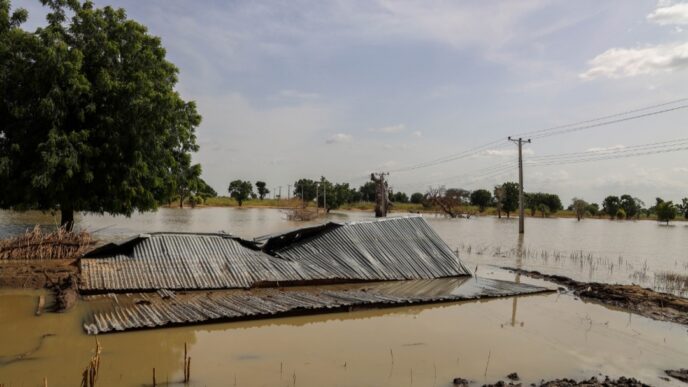File photo of flooding in Jigawa
The National Emergency Management Agency (NEMA) says 185 persons have lost their lives to flooding.
In a statement on Friday, Manzo Ezekiel, NEMA spokesperson, warned citizens who reside around the River Benue to immediately relocate.
“As of yesterday (Thursday), the number increased to about 185. All the numbers (persons displaced, houses affected, persons affected) have increased because our emergency operation centre works 24 hours,” the statement reads.
“We’re in touch with our field officers, getting information about what is happening, and because the flooding is something that is still ongoing; the number has changed, the number of dead has risen.”
Advertisement
Ezekiel said water from the Lagdo Dam in Cameroon is usually released around this time of the year, adding that the federal government was yet to receive any notification from the neighbouring country.
He said the state at risk of being affected the most is Adamawa, due to its proximity to River Benue.
Other states include Taraba, Benue, some parts of Nasarawa, Benue, and Kogi — where the dam meets with the water coming down from River Niger and flows downwards to some parts of Anambra, Enugu, Edo, and Delta states.
Advertisement
“It has not reached the red level yet, but it’s at the point of warning that the water level is rising. People should prepare. I’m talking about the River Benue,” Ezekiel said.
“So, the other thing is that if the water level is getting to the red point, we know that there’s a danger.
“Even if such information has come, at least, I’m not aware of it yet, but normally it is around this time of the year that the issue of the release of water from Lagdo Dam comes up.
“But the flooding that has been recorded in Nigeria is from the amount of rainfall that has been recorded internally in the country, so the rainfalls and the tributaries of these two major rivers (Niger and Benue) are the ones that have been responsible for most of the flooding in Nigeria so far.”
Advertisement











